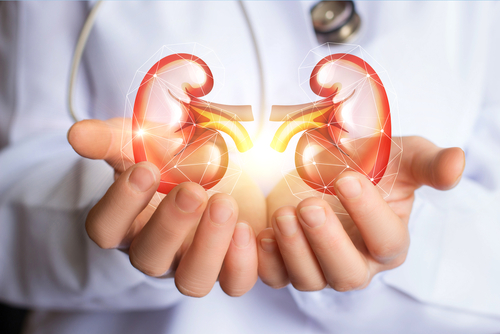Risk Factors and Complications of Chronic Kidney Disease
3 min read
Chronic kidney disease is also known as chronic kidney failure. It describes the gradual loss of kidney function. The function of your kidney is to filter out waste and excess fluids from your blood, which are excreted from the urine. When chronic kidney disease reaches its advanced stage, it can lead to the buildup of dangerous levels of fluid, wastes and electrolytes in your body.
You may have a few signs and symptoms in the early stages of chronic kidney disease, and it does not become apparent till your kidney function is impaired, significantly.
Nephrologist in Lahore focus on slowing the progression of the kidney damage during treatment, usually by controlling the underlying cause. Moreover, chronic kidney disease can progress to end-stage kidney failure, which is fatal, unless treated.
Risks of Chronic Kidney Disease
Diseases and conditions that cause chronic kidney disease include the following
- Type 1 Diabetes or Type 2 Diabetes.
- High blood pressure.
- Glomerulonephritis – Inflammation of the filtering units of the kidneys.
- Polycystic kidney disease.
- Chronic obstruction of the urinary tract due to conditions, for example, enlarged prostate, kidney stones and certain cancerous conditions.
- Vesicoureteral Reflux – This condition causes the urine to back up into your kidneys.
- Recurrent Kidney Infection – It is also known as Pyelonephritis.
Complications of Chronic Kidney Disease
Kidney malfunction can drastically affect your overall health. It can lead to multiple complications in other areas of the body.
Some of the potential concerns are as following
Anemia
When your kidneys don’t make enough erythropoietin, it affects your body’s ability to make red blood cells, which causes anemia. You can also have anemia due to low levels of iron, B12, vitamin and folic acid. Anemia can deprive your body of tissues of oxygen and vital organs.
Bone Weakness
When your kidneys don’t function properly, it can lead to low calcium levels; high phosphorous levels, known as hyperphosphatemia; and weakening of bones. Eventually increasing the risk of bone fractures.
Retention of Fluid
Your body hangs on to excess fluid during fluid retention, which can lead to swelling of the limbs, high blood pressure and fluid in the lungs.
Gout
This type of arthritis is caused by buildup of uric acid in your joints. The two conditions are linked because uric acid is filtered through the kidneys.
Heart Disease
Heart diseases affect your blood vessels. So, when your kidneys do not function properly, it can lead to heart concerns.
Hypertension
Hypertension can worsen the function of your kidneys. It can lead to fluid retention and drastically affect the blood pressure, worsening it more.
Hyperkalemia
This is sudden increase in the potassium levels that can affect the function of the heart.
Metabolic Acidosis
The pH balance is disturbed when there is too much acid in your bodily fluids and the kidney does not filter it out. This can lead to worsening of kidney diseases and lead to bone loss, muscle loss and endocrine disorders.
Uremia
Uremia is buildup of waste products in your blood, which can cause kidney damage. It can also cause various other symptoms, for example fatigue, restless leg, nausea, and sleep disturbances.
Preventing Complications
It is necessary to work closely with your Nephrologist in Karachi at any stage of chronic kidney disease.
Although there is no cure, treatment can slow down its progression and lower the chances of health-related complications.







